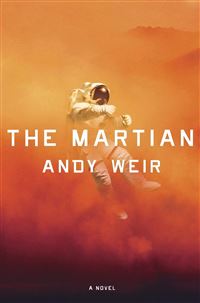 I’ve been reading some fantastic books lately, but I realized that I haven’t written a lot about them. The three best ones in the last year or so are:
I’ve been reading some fantastic books lately, but I realized that I haven’t written a lot about them. The three best ones in the last year or so are:
1) The Kingkiller Chronicles by Patrick Rothfuss – I’ve already written once about this trilogy. The only negative point is that the third book isn’t finished yet and the first two were so good that it’s almost physically painful to wait for the third one! I heard someone say, “If you haven’t read these books or you didn’t like it, then you’re not my friend.” I won’t go quite that far, but this is one of my top three recommendations right now. You can listen to an interview with the author on the Triangulation podcast. (2,581 four and five star reviews on Amazon)
2) The Martian by Andy Weir – Technically I suppose this is sci-fi but it’s set very close to present day and is based on as much current science as possible. Tiny spoiler but in the first page or two, you realize that an astronaut gets stranded on Mars (they think he’s dead) and then he has to try and survive. It’s a bit like Robinson Crusoe on Mars. You can listen to an interview with the author on the Triangulation podcast. (4,271 four and five star reviews on Amazon)
3) Mistborn Trilogy by Brandon Sanderson – This one is the most heavily fantasy/sci-fi of the bunch but it’s another solid recommendation. The basic concept is that there are a small subset of the population that can use various ingested metals to have a single simple super-power and an even smaller group can use all of the super-powers. The setting is a pre-technology world with an evil overlord and there are rumblings of a revolution which most people think is impossible. If I didn’t have so many other pressing responsibilities in my life, I could envision binging on three straight books. Fantastic storytelling! (980 four and five star reviews on Amazon)
If I had to pick just one book to recommend, it would probably be The Martian because it probably appeals to the broadest swath of readers. Or you can just wait a few years for a movie to come out. After the success of Gravity, I don’t see how they won’t make a movie of The Martian. Do yourself a favor and read it now.
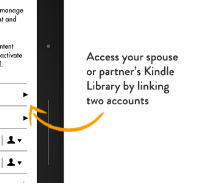 Tyla and I get most of our Kindle books from our libraries awesome digital section, but every once in a while, there are some specific books that we end up buying. We each have our own Kindles tied to our own accounts, so sometimes that has meant buying a book twice and that’s annoying.
Tyla and I get most of our Kindle books from our libraries awesome digital section, but every once in a while, there are some specific books that we end up buying. We each have our own Kindles tied to our own accounts, so sometimes that has meant buying a book twice and that’s annoying.
 I’ve been reading some fantastic books lately, but I realized that I haven’t written a lot about them. The three best ones in the last year or so are:
I’ve been reading some fantastic books lately, but I realized that I haven’t written a lot about them. The three best ones in the last year or so are: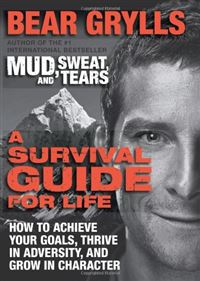 I admit to being a Bear Grylls fanboy. I’ll watch just about anything he does, or at least give it a try. He has quite a few books so I decided to look at one. Meh. It’s really not very good, but there were three thoughts from the book that have really stuck with me.
I admit to being a Bear Grylls fanboy. I’ll watch just about anything he does, or at least give it a try. He has quite a few books so I decided to look at one. Meh. It’s really not very good, but there were three thoughts from the book that have really stuck with me. I’ve been reading a lot of good books lately thanks to
I’ve been reading a lot of good books lately thanks to 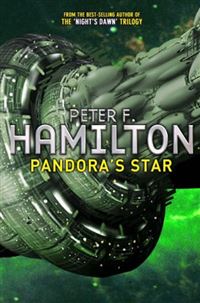 I heard about Peter F. Hamilton from enough distinct sources that I decided it was time to dive into his books. I started by reading
I heard about Peter F. Hamilton from enough distinct sources that I decided it was time to dive into his books. I started by reading  The ratio of good books I hear about to good books I have time to read is approximately 7000 to 1. Ok, maybe it’s not that bad, but I do have a huge backlog of books that I’d love to read. Keeping track of them was a bit ugly in the past but it got a lot cleaner once I started using
The ratio of good books I hear about to good books I have time to read is approximately 7000 to 1. Ok, maybe it’s not that bad, but I do have a huge backlog of books that I’d love to read. Keeping track of them was a bit ugly in the past but it got a lot cleaner once I started using 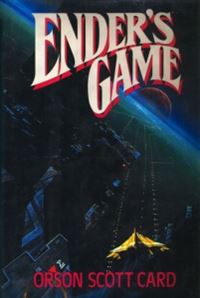 The Ender’s Game movie launched this weekend. I’m excited to see it (probably at home after it comes out on disc) so I can’t tell you if the movie is any good or not. But the book? The book is fantastic. This is probably my favorite book of all time. There’s always the debate about whether you should read the book or watch the movie first. Both have their merits and I’ve done both. There’s no argument for this one though. You really need to read the book first. Why? Well I can’t tell you for the same reason you shouldn’t watch the movie first. I guess the only case where you should ever watch the movie first is if you have absolutely zero intention of ever reading the book.
The Ender’s Game movie launched this weekend. I’m excited to see it (probably at home after it comes out on disc) so I can’t tell you if the movie is any good or not. But the book? The book is fantastic. This is probably my favorite book of all time. There’s always the debate about whether you should read the book or watch the movie first. Both have their merits and I’ve done both. There’s no argument for this one though. You really need to read the book first. Why? Well I can’t tell you for the same reason you shouldn’t watch the movie first. I guess the only case where you should ever watch the movie first is if you have absolutely zero intention of ever reading the book. I finally pulled the trigger on a Kindle upgrade (
I finally pulled the trigger on a Kindle upgrade (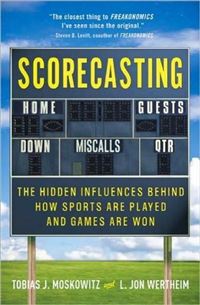 If you enjoy sports and statistics, there’s a book you need to read and it’s called
If you enjoy sports and statistics, there’s a book you need to read and it’s called